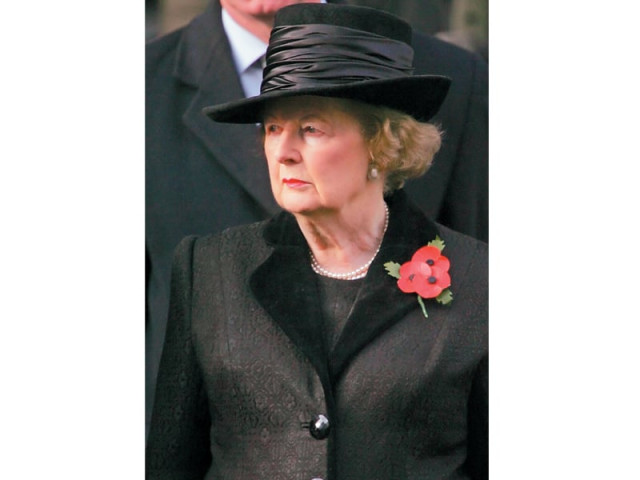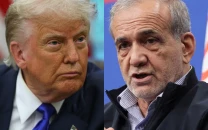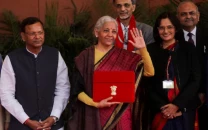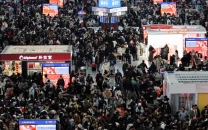End of an era: Farewell to the ‘Iron Lady’
Tributes pour in for Britain’s longest serving prime minister.

“The real thing about Margaret Thatcher is that she didn’t just lead our country, she saved our country,” says Cameron. PHOTO: FILE
Margaret Thatcher, Britain’s first – and to date the only female prime minister –who transformed the country and inspired conservatives around the world by radically rolling back the state during her 11 years in power, died on Monday following a stroke. She was 87.
She died peacefully on Monday morning at the Ritz hotel after a stroke. She had been in poor health for months and had declined into dementia in her final years.
The unyielding, outspoken Thatcher led the Conservatives to three election victories, governing from 1979 to 1990, the longest continuous period in office by a British premier since the early 19th century.
A grocer’s daughter with a steely resolve, she was loved and loathed in equal measure as she crushed the unions, privatised vast swathes of British industry, clashed with the European Union and fought a war to recover the Falkland Islands from Argentine invaders.
At the 1980 Conservative Party conference, she told her colleagues who had been urging her to soften her economic policies which were driving up unemployment that “to those waiting with bated breath for that favourite media catchphrase, the U-turn, I have only one thing to say: You turn if you want. The lady’s not for turning.”
Current UK Prime Minister David Cameron cut short a visit to Europe to return to Britain after the death was announced and British flags on government buildings and royal palaces across London were lowered to half mast.
Cameron said she would go down as Britain’s greatest peacetime prime minister. “We’ve lost a great leader, a great prime minister and a great Briton.”
“The real thing about Margaret Thatcher is that she didn’t just lead our country, she saved our country.”
Mourners began to lay roses, tulips and lilies on the doorstep of her house in Belgravia, one of London’s most exclusive areas. One note said: “The greatest British leader” while another said to “the iron lady”.
The British government said Thatcher would have a ceremonial funeral with military honours at London’s St Paul’s Cathedral, which falls short of a full state funeral, in accordance with the wishes of her family. The abiding domestic images of her premiership will remain those of conflict: huge police confrontations with the miners’ union, her riding a tank in a white headscarf, and flames rising above Trafalgar Square in the riots over an unpopular local tax which ultimately led to her downfall.
In power she faced plotting inside her party from those who thought she was unreasonably divisive. Some opponents said on social media that they would hold a party to celebrate her death.
While often deeply unpopular at home - especially in northern England, Wales, Scotland and parts of Northern Ireland - Thatcher’s strength won her praise and high regard in both Washington, Berlin and Moscow. The Soviet defence ministry newspaper Red Star dubbed Thatcher the “Iron Lady” and she revelled in the nickname though she worked closely with the last Soviet Union leader Mikhail Gorbachev as he opened up the USSR.
“Thatcher was a politician whose word carried great weight,” said Gorbachev, who sought to reform the Soviet Union and improved ties with the West but failed to avert the collapse of the nuclear-armed superpower.
Months before Gorbachev succeeded Konstantin Chernenko as Soviet leader, Thatcher said of him: “We can do business together”.
Thatcher’s combative opposition to greater European integration antagonised allies in Europe and ultimately helped to sow the seeds of her own downfall.
In a few tense weeks at the end of 1990, Thatcher fell from power as some of her most senior ministers turned on her in what she said later was treachery.
Published in The Express Tribune, April 9th, 2013.



















COMMENTS
Comments are moderated and generally will be posted if they are on-topic and not abusive.
For more information, please see our Comments FAQ